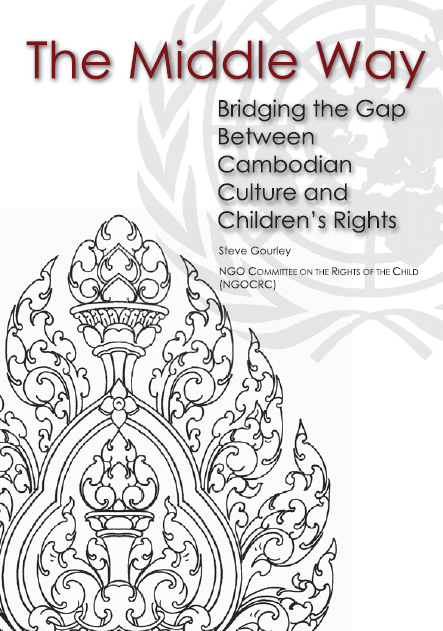
The Middle Way: Bridging the Gap Between Cambodian Culture and Children’s Rights
Publication Year: 2009 / Sources: NGO Committee on the Rights of the Child (NGOCRC)This research addresses the lack of comprehensive information available in Cambodia relating to knowledge, attitudes, and practice of ‘children’s rights’ as defined by the United Nations Convention on the Rights of the Child (UNCRC). For more than a dozen years, awareness-raising about children’s rights (CR) has been a prominent feature of the development work landscape in Cambodia.
Download: English | Khmer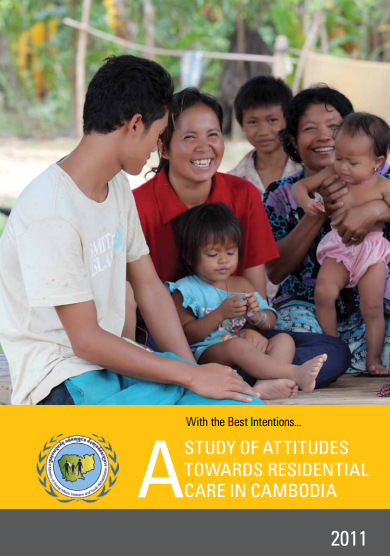
A Study of Attitudes Towards Residential Care in Cambodia
Publication Year: 2011 / Sources: Ministry of Social Affairs, Veterans and Youth RehabilitationThis study seeks to understand prevailing attitudes towards residential care in Cambodia and build evidence for policy and advocacy purposes, particularly public awareness campaigns. This research is also important in light of the growing realization that a comprehensive social protection system is needed in Cambodia, with the provision of family and child welfare services being an important component.
Download: English | Khmer
HIV/AIDS and The Private Sector In Cambodia
Publication Year: 2014 / Sources: Cambodia Business Coalition on AIDS (CBCA) and HIV/AIDS Coordinating Committee (HACC)Following a period which saw one of the fastest growing HIV epidemics in Asia in the 1990s, Cambodia has become one of the few countries to have reversed its HIV epidemic, from an estimated prevalence of 2% (among adults aged 15-49) in 1998 to 0.6% in 2011.
Download: English | Khmer
The Role and Contribution of Civil Society in the National Response to HIV/AIDS
Publication Year: 2012 / Sources: HIV/AIDS Coordinating Committee (HACC)Civil society organizations (CSOs) play diverse and distinct roles and have contributed greatly to Cambodia’s achievement of Millennium Development Goals related to HIV/AIDS – particularly the reversal of the epidemic. However, despite these efforts and commitments, the role played by CSOs in Cambodia has not yet been systematically assessed, with potential gaps in coordination and coverage, and insufficient knowledge sharing that creates unknown islands of excellence.
Download: English | Khmer
Detention As Treatment: Detention of Methamphetamine Users in Cambodia, Laos, and Thailand
Publication Year: 2010 / Sources: Open Society InstittuteThis report examines the establishment and operation of centers to detain and “treat” methamphetamine users in Thailand, Cambodia, and Laos. It documents the increasing number of such compulsory drug treatment/detention centers (CDTDCs)1, examines the policies and practices that force people into them, and explores the implications for individual health, public health, and human rights.
Download: English | Khmer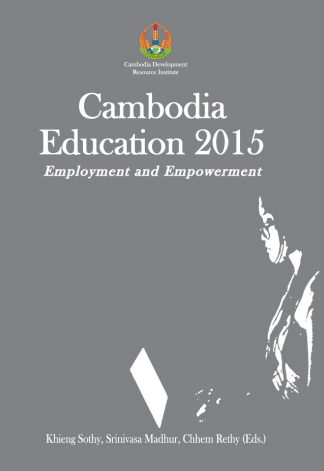
Cambodia Education 2015: Employment and Empowerment
Publication Year: 2015 / Sources: Cambodia Development Resource Institute (CDRI)Access to quality education and achieving educational potential, especially among youth, who form the bedrock of future growth and development, are important ends in themselves. Not only does education contribute to income growth and help lift people out of poverty, it also enables them to take advantage of economic, social and political opportunities and puts individuals in control of their own destiny, allowing them to better enjoy their lives.
Download: English | Khmer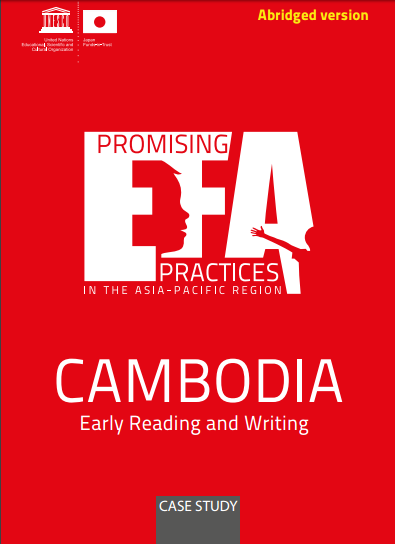
Cambodia Early Reading and Writing: Promising EFA Practices in the Asia-Pacific Region, Case Study
Publication Year: 2015 / Sources: UNESCOImprovements in education in Cambodia have been remarkable over the past decade, especially in terms of access. This achievement is a result of continued commitment by the government, development partners and donor countries to reaching Cambodia’s development goals, including those in the education sector. This section presents a summary of the achievements relating to each of the EFA goals.
Download: English | Khmer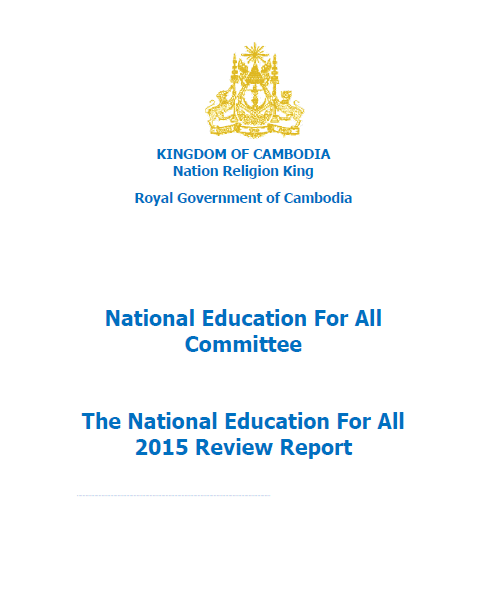
The National Education For All 2015 Review Report
Publication Year: 2015 / Sources: National Education For All CommitteeThe development of skilled human resources with quality, ability and virtue is a key priority for Cambodia. The Royal Government envisages that Cambodia will step into lower–middle income country status by 2030 and attain developed country status by 2050. In working towards this goal the education sector continues to give priority to the improvement of education quality and relevance to the needs of the labor market.
Download: English | Khmer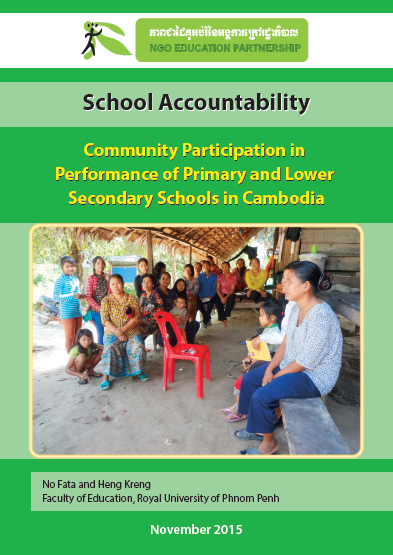
School Accountability: Community Participation in Performance of Primary and Lower Secondary Schools in Cambodia
Publication Year: 2015 / Sources: NGO Education PartnershipEducation is currently at the forefront of development and political agendas for most countries around the globe. Each country is working diligently to bring equitable and accessible education of high quality to its citizens. As developing countries in particular make progress on the goal of access to education, we can see attention shifting to issues of quality of that education, recognizing that school attendance itself is not sufficient to ensure good learning outcomes.
Download: English | Khmer
Rights to Education in Cambodia: Community Level Research
Publication Year: 2014 / Sources: UNESCO & NGO Education PartnershipThis study of The Right to Education in Cambodia is part of a global project of UNESCO to review national legal and policy frameworks regarding the right to education.
Download: English | Khmer